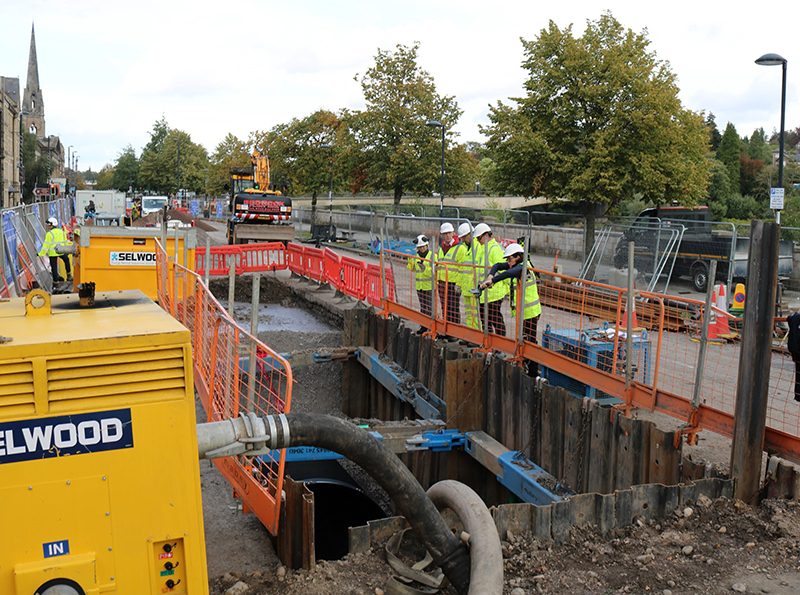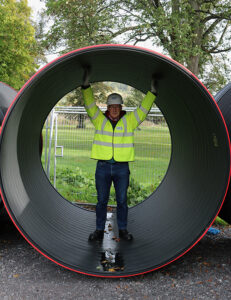
THE installation of a ‘super sewer’ in Perth is making progress, with the project using a steel-reinforced composite pipe to cut carbon emissions.
Scottish Water, which is leading the project, explained that modern sewers of this size would ordinarily be built using concrete pipe to achieve the required strength. However, manufacturing and transporting concrete pipe generates ‘significant’ carbon emissions.
The 2.2 metre composite steel pipe being used instead has a lower carbon cost and is ‘much lighter’, whilst also having higher strength than could be achieved using a plastic pipe at this scale, the organisation added.
Installation of the new super sewer has been progressing in both Shore Road and Tay Street since June. Shoring piles measuring 6.5 metres are first vibrated into place to enable the safe creation of a deep excavation, allowing the pipe bed to be laid and the pipes to be positioned around four metres below ground level. As each section is backfilled, the shoring piles are relocated to enable the next one.
The super sewer is the first element of a major programme of investment in the Fair City’s water and sewerage infrastructure which is set to be delivered over the coming years. The new pipe will help support the city’s growth, while also reducing the risk of sewer flooding affecting low-lying areas between Muirton and the city centre, Scottish Water said.

Local MSP John Swinney recently visited the site of the major drainage upgrade. He said, “This is a very significant infrastructure project and a huge capital investment that Scottish Water is delivering. It brings with it a lot of disruption, but the work is so important to provide for the expansion of the city, to provide for the new housing that is needed and crucially to alleviate some of the pressures from climate change such as flooding.
“All of us can see that the weather around us is changing. We’ve got much heavier, sharper inundations of rainfall; and the traditional sewage infrastructure of Scotland isn’t designed for that. The storage capacity in the super sewer will help to future-proof the city for climate change as well as its continuing development.”
Scottish Water’s senior project manager, Neil McCulloch, added, “The work we are delivering is vital for the future of Perth, responding both to the city’s growth and the impacts of climate change that we are already starting to see.
“While we are adapting our infrastructure to a changing climate, we also need to play our full part in addressing its causes. Scottish Water has set a challenging target to go beyond net zero emissions across all of our work by 2040, including the delivery of our significant investment programme. Finding lower carbon ways to build new infrastructure is a crucial part of that journey.”








